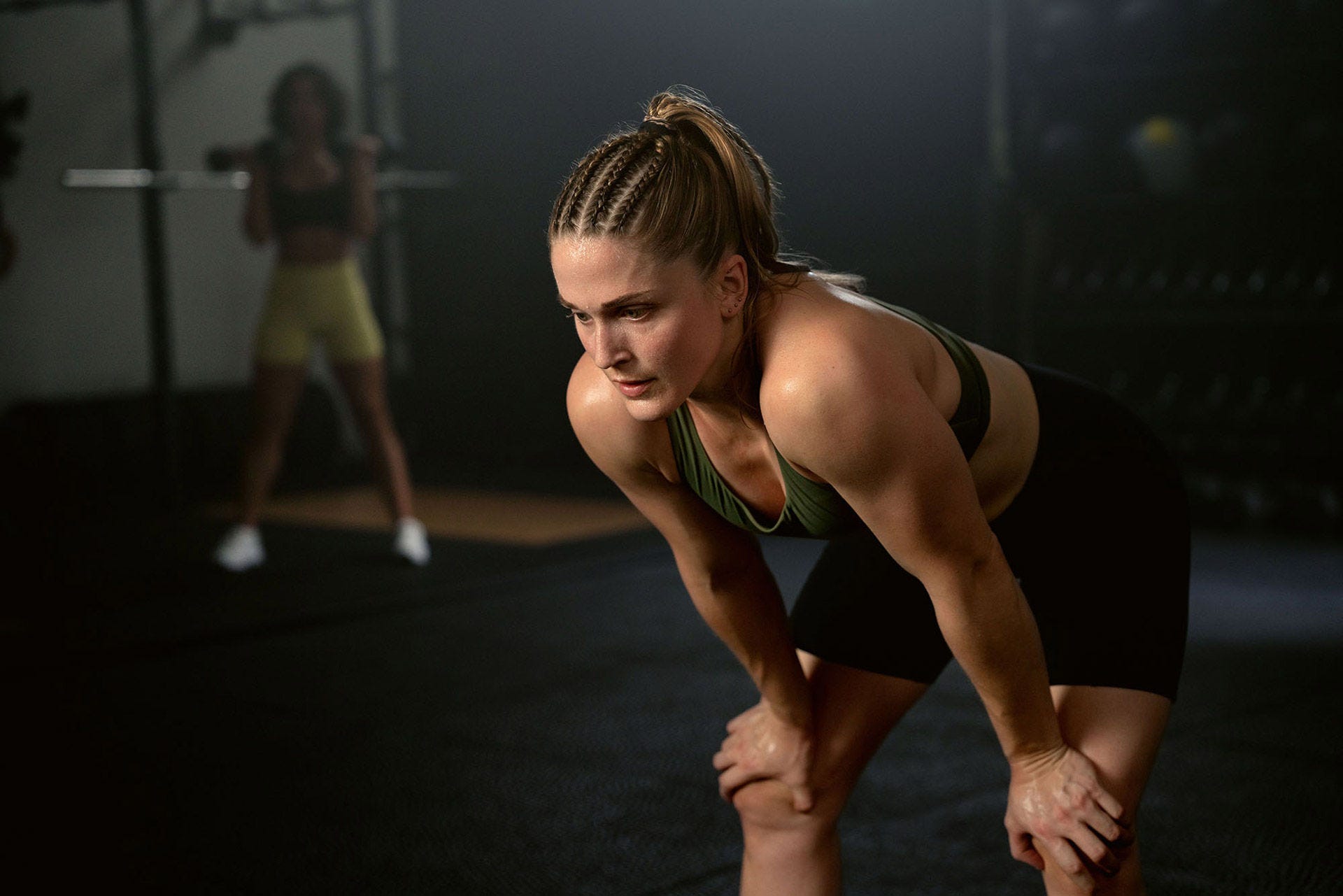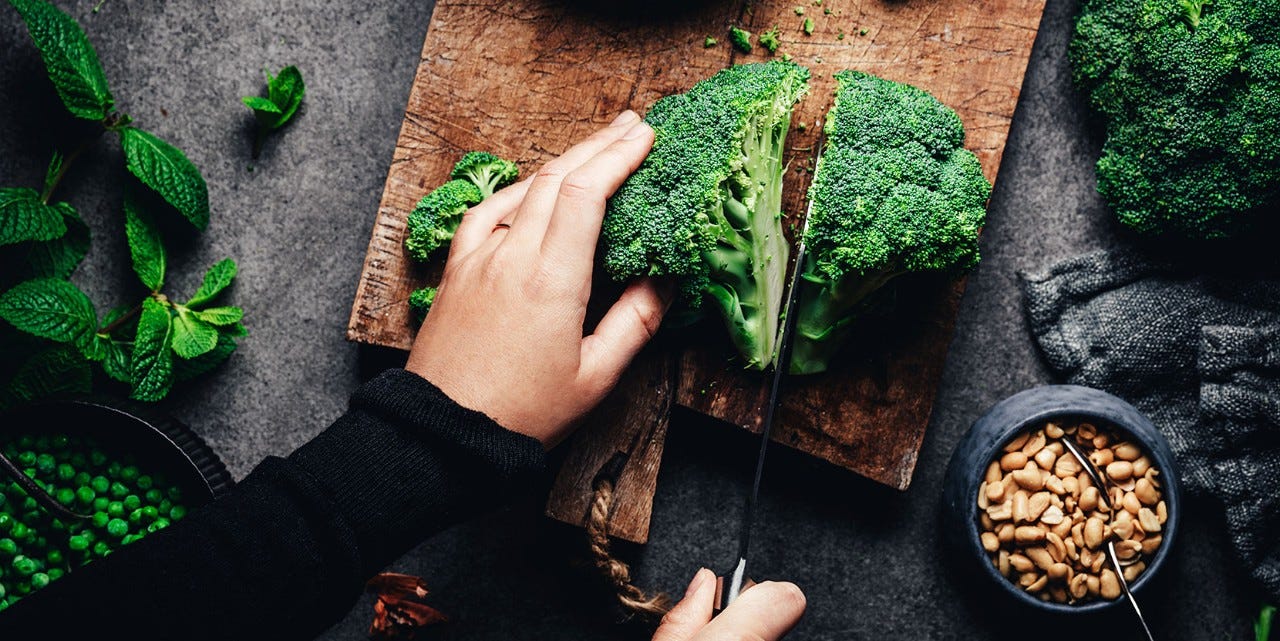Eating well to build muscle healthily
Well-defined muscles don’t just start in the gym – they also start on your plate. because nutrition plays a crucial role when it comes to building muscle.

While some people seem to achieve their goals by working hard on the machines at the gym, others are left wondering why their legs or biceps aren’t as bulky as they would like despite putting in the hours. The answer is often in their diet rather than their training plan. What you eat is key to building muscle mass efficiently.
How important is nutrition in building muscle?
What you eat is an important part of building muscle. The right foods provide your body with the nutrients it needs to repair and grow muscle tissue. For the best results, you need the right quantities of proteins, carbohydrates and fats from the right sources.
Studies show that without well-thought-out nutritional planning, you won’t make significant process no matter how intensive your training. “Of course, training is the most important element,” says nutritionist Céline Matter. Without working out to the right degree, you can eat what you want, but the muscles need to be stimulated to change.
“But this stimulus alone will go unused if you don’t provide the body with the right fuel.” So diet and working out are equally important if you’re looking to build muscle.
Which foods are best for building muscle?
The right diet is key to building muscle. Proteins, healthy fats and complex carbohydrates provide the body with the energy it needs and support the regeneration and growth of the muscles. Certain foods provide particularly high-quality nutrients for targeted muscle build-up. What you should eat:
-
Carbohydrates
Carbohydrates are the most important source of energy, particularly for intensive training sessions. They fill the glycogen stores in the muscles and provide power. Foods that provide long-lasting energy and important nutrients:
- Oats
- Quinoa
- Sweet potatoes
- Fruit, particularly bananas
-
Fats
Unsaturated fats are essential for the hormone balance, which has a strong influence on muscle building. They can be found in:
- Avocados
- Olive oil
- Nuts and seeds
Omega-3 fatty acids also promote muscle regeneration. These can be found in:
- Salmon
- Linseeds
-
Proteins
Proteins are the building blocks of muscles. High-quality suppliers include:
- Chicken or turkey
- Fish
- Eggs
- Dairy products
- Tofu
- Lentils
- Chickpeas
However, too much protein, particularly in the form of supplements, can harm the kidneys. Experts recommend a daily protein intake of 1.3 to 1.8 g per kilogramme of body weight, distributed across several meals.
“Muscle building and breakdown takes place throughout the day.”
The right nutrition for the right phase of training
You can’t just load up the calories and expect to gain defined muscle. It’s not that simple. Your diet will vary depending on your goal – do you want to build up or define your muscles? So what should you eat to bulk up and what foods can help create muscle definition?
-
Nutrition for bulking up
When building muscle, you need extra calories to supply the body with enough energy for the muscles to grow. Focus on complex carbohydrates, proteins and healthy fats.
Ideal meals include brown rice with chicken cooked with plant-based oils or oats with nuts and half-fat quark. When it comes to building muscle mass instead of fat, your main focus should be on the quality of the food.
Uncontrolled excess calories carry the risk of building up fat instead of muscle mass. Ideally, the protein intake should be spread across different times of the day. “Muscle building and breakdown takes place throughout the day,” says nutritionist Matter.
“So, for example, if you supply your body with 120 g of protein just once a day, it will build up less muscle mass than if you consume the same amount with around 20 to 30 g of protein spread across several meals.”
-
What to eat for muscle definition
To add definition, you have to reduce your calorie consumption a little to reduce body fat and make the muscles visible. So, you need to keep up your protein intake and reduce the carbohydrates.
Meals like grilled fish with vegetables and quinoa or salads with turkey strips and a wholegrain roll are perfect. At the same time, you have to make sure your calorie deficit isn’t too high, because this will cause your muscles to break down.
You can’t build muscles on a diet
Building muscle and losing weight have different calorie requirements: you need to be in a calorie surplus to build muscle and in a calorie deficit to lose weight. However, it is possible to reduce body fat while maintaining muscle mass.
“In most cases, it’s easier to focus on one or the other,” says expert Matter. “However, aiming for both at the same time isn’t out of the question.” A balanced diet with sufficient protein helps achieve this goal.
Watch your calorie intake
For effective nutrition, you need to be aware of your individual calorie requirements. Factors such as age, sex, weight and level of physical activity play a role – an online calculator or nutritionist can provide more information. Once you understand your calorie requirements, you can plan and achieve sustainable results.
What to eat to build muscle
Carbohydrates, fats and proteins are all essential for building muscle healthily. But are there gender-specific differences? What do men and women need to be aware of?
-
Optimal nutrition for women when building muscle
Women should opt for a high-protein diet with high-quality sources of protein, such as salmon, eggs, Greek yoghurt and plant-based alternatives such as pulses. Healthy carbohydrates such as quinoa and wholegrain products also play an important role,
because it’s also important for women to get sufficient energy in the form of calories. “Especially if they fear carbohydrates or worry about eating too many calories, women often don’t consume enough energy to build muscle,” adds Matter.
-
Optimal nutrition for men when building muscle
Men often need more calories and protein to build muscle mass. Lean meats, combined with sweet potatoes or oats, provide energy and protein. Nuts and seeds are great for snacks in between meals.
-
Can you build muscle with a vegetarian diet?
It is also possible to build muscle on a vegetarian diet. You just need to eat a sufficient variety of plant-based protein sources such as tofu, seitan, lentils and chickpeas. You can also use plant-based protein powder to cover your requirements, if necessary.
“With plant-based proteins, you need larger quantities and a little more planning,” explains Matter. A balanced combination – i.e. not just one but several sources of plant-based protein – ensures that you get all the essential amino acids that you need.
Do you need supplements to build muscle?
Most people can get all the nutrients they need from a balanced diet. However, supplements such as whey protein or creatine can help if you can’t cover all your requirements through food.
But Matter says: “These products should really be seen as a supplement and not as a substitute for a balanced diet.” You would have to take a lot of pills to get the right amount of protein.
Caution is advised with inferior products: Some supplements contain substances that are harmful to your health. Protein powders in particular are often artificially sweetened. This has a negative impact on the microbiome and our gut health. So Matter always recommends the natural version of protein supplements.
For anyone interested in this topic, nutritionists offer tailor-made solutions that also take the quality of the products into account. But there’s nothing wrong with an occasional protein bar or yoghurt from the store.
Should you eat before or after strength training?
Whether you eat before or after strength training depends partly on your goal: Different nutrition plans are required depending on whether you want to build muscle, lose fat or improve performance. When you train and what you plan to do for the rest of the day also have to be taken into account.
What to eat before training
Your last meal before training should comprise carbohydrates and protein. The carbohydrates are most important, because they provide the energy and nutrients you need for an effective work-out.
When you eat is also important: You should eat your last big meal, e.g. a plate of pasta four to five hours before training. One to three hours before, it’s a good idea to take on board carbohydrate-rich snacks or small low-fat meals with dietary fibre and protein content. For example:
- Wholegrain or white bread with cottage cheese
- Banana with peanut butter
- Muesli or cornflakes
- Dried fruit
- Roll with honey
- Cereal bar
- Rice cakes
What to eat after training
After training you need to eat proteins and carbohydrates to refill your glycogen stores. A protein shake is ideal to support regeneration. Other suitable meals:
- Chocolate milk or yoghurt drink
- Small ham and cheese sandwich
- Chicken and tomato or cottage cheese and salmon wrap
- Scrambled egg with a roll
- Yoghurt with oats
- Quark with a banana
Avoid overtraining – reduce the risk of injury
But don’t forget that even the best nutrition can’t compensate for the overload caused by excessively intensive training. Too much training can lead to exhaustion, increased risk of injury and a drop in performance levels. It’s therefore essential to schedule regular recovery phases and get plenty of sleep so the muscles and regenerate and grow.
But with a little care and the right diet, you can lay the foundations for effective muscle building. Quality, planning, and adjusting your diet to suit your goals are the key to success. Your body will thank you for it.



